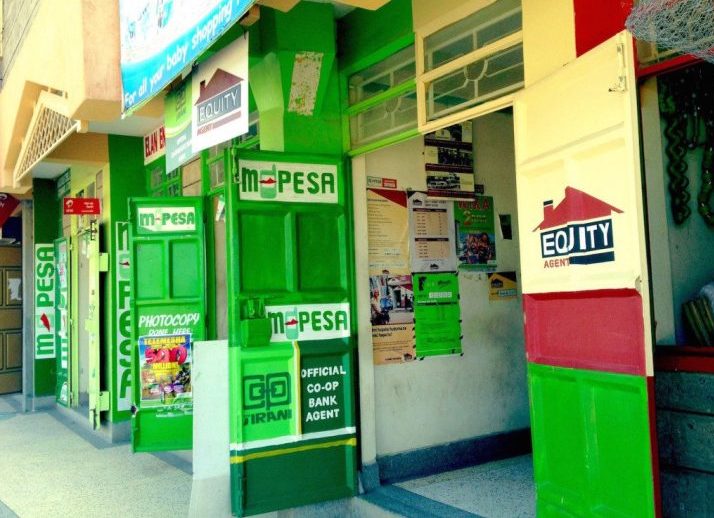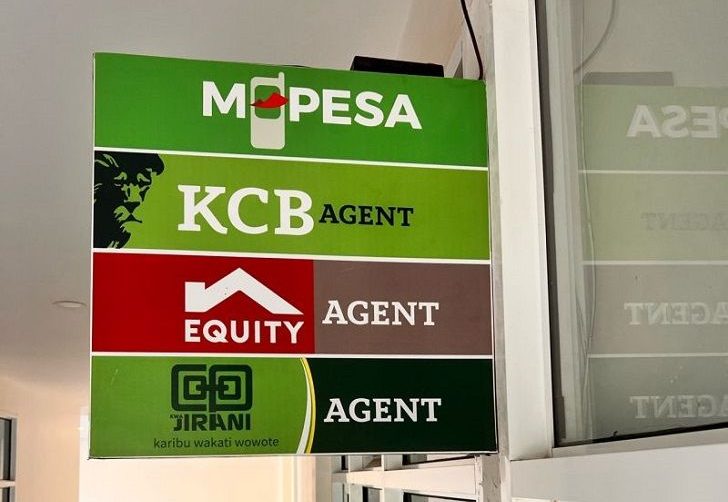Are you looking How much do Mpesa agents earn per month? Many Safaricom agents report substantial monthly income, especially those situated in high-traffic areas. Furthermore, if you diversify services to sell airtime, mobile accessories or facilitate utility payments, you can can increase your revenue streams for your M-pesa shop
The M-Pesa business in Kenya is highly profitable due to the widespread adoption of mobile money services across the country. Agents earn commissions from transactions including deposits, withdrawals, and bill payments, with the volume of these transactions being significantly high given M-Pesa’s dominance in the market. The convenience and necessity of M-Pesa services ensure a steady stream of customers.
This blog post will address various aspects of establishing an M-Pesa business, from profitability, costs to challenges faced by agents.
Table of Contents
- How M-pesa Business Works
- Why investing in M-pesa business is a good idea
- How To Start A Mpesa Business In Kenya
- How Much Do Mpesa Agents Earn Per Month?
- How Much Is Needed To Start A Mpesa Business In Kenya
- How To Become A successful M-Pesa Agent
- How To Market Your M-Pesa Business Effectively
- How To Manage Float in An M-Pesa Business
- Where to Locate your M-pesa Business In Kenya
- What Challenges Do M-Pesa Businesses In Kenya Face?
- FAQs on Running an M-pesa Kenya Business
How M-pesa Business Works
The M-Pesa business in Kenya operates by enabling agents to facilitate mobile money transactions for their customers.
Read Next: Is Agency Banking in Kenya Still Profitable?
Agents have a mobile phone loaded with an M-Pesa Sim card line and registration details. Customers visit these agents to deposit or withdraw money from their M-Pesa accounts, transfer funds, pay bills such as school fees, and purchase goods and services. The agents earn a commission on each transaction they process, which is paid by Safaricom, (bank or telecom companies) the service provider. To ensure smooth operations, agents must maintain sufficient liquidity both in cash and in their M-Pesa e-wallets to handle customer demands.
The system is regulated to ensure security and compliance with financial laws, making it a reliable and integral part of Kenya’s financial ecosystem.
Why investing in M-pesa business is a good idea

Investing in an M-Pesa business in Kenya offers numerous advantages due to its established and growing presence in the financial services sector. since its launch, the Mpesa platform has evolved from handling basic payments and transactions to a comprehensive financial ecosystem that offers offers credit, savings, investment solutions, wealth management, and insurance
Below are the 6 best facts why you should invest in MPesa agent business in Kenya;
- High Demand: M-PESA has over 34 million subscribers in Kenyas. They users rely on it for many daily transactions such as money transfers, bill payments, and airtime purchases. This high demand for M-Pesa services ensures you a steady stream of customers and profits.
- Agent Network: Safaricom have over 300,000 agents nationwide. M-Pesa agents earn commissions on every transaction, including deposits, withdrawals, and money transfers.
- Market Share: M-PESA’s has a strong market share at 93.4% by June 2024 of mobile money in Kenya
- Business Support: M-PESA supports over 1.5 million micro, small, medium, and large enterprises through its merchant payment options beyond basic transactions.
- Insurance: M-PESA has partnered with leading insurance companies in Kenya providers to offer comprehensive insurance solutions via the platform
- Daraja Platform: This platform allows businesses to integrate their websites, mobile apps, and point-of-sale systems with M-PESA through APIs, which has fostered a community of over 90,000 developers
How To Start A Mpesa Business In Kenya
Starting an M-Pesa business in Kenya involves 8 steps, but with careful planning and execution, it can be a rewarding venture. Here’s a concise guide to help you get started:
- Understand the M-Pesa System: Familiarize yourself with how the MPesa system works and its significance in Kenya’s financial landscape. Research the services offered, transaction fees, and the role of M-Pesa agents.
- Meet Eligibility Criteria: Ensure you meet Safaricom’s eligibility requirements, which typically include being a registered Kenyan business entity, having a valid national ID or passport, and meeting minimum capital requirements.
- Prepare Documentation: Gather necessary documents such as your business registration certificate, personal identification, bank statements, and proof of address for the business location.
- Choose a Location: Select a strategic location for your MPesa business, preferably in areas with high foot traffic such as markets, shopping centers, or busy urban areas. Ensure it complies with local regulations.
- Submit Application to Safaricom: Apply to become an MPesa agent through Safaricom’s official channels. Complete the application form accurately and attach all required documents.
- Training and Approval: If your application is approved, you will undergo training provided by Safaricom on how to operate the M-Pesa system, handle transactions, and comply with regulations.
- Set Up Your Agency: Once trained, set up your M-Pesa agency with the necessary equipment provided by Safaricom, including a mobile phone with an M-Pesa line and other tools required for transactions.
- Provide Excellent Customer Service: Focus on delivering excellent customer service to build trust and loyalty among your clientele. Ensure smooth and efficient transactions while maintaining security measures.
How Much Do Mpesa Agents Earn Per Month?
M-Pesa agents in Kenya typically earn between KSh 20,000 and KSh 100,000 per month, depending on factors like location and transaction volume
On average, M-Pesa agents earn commissions ranging from 2% to 7% on transactions processed through their agency. These transactions include deposits, withdrawals, bill payments, and other services offered through the platform.
According to a study by the University of Nairobi, the average daily transaction value for M-Pesa agents ranges from KES 50,000 to KES 500,000 (about $500 to $5,000). With a commission rate of 1%, an agent processing KES 500,000 in daily transactions could earn KES 5,000 (about $50) in commissions per day
With a high volume of transactions and strategic location, some agents can earn substantial incomes, often exceeding the average monthly earnings in Kenya. However, it’s essential to consider factors such as operational costs, float management, and competition, which can impact overall profitability. Nonetheless, successful M-Pesa agents have the potential to generate significant monthly income, making it an attractive business opportunity in Kenya’s financial landscape.
How Much Is Needed To Start A Mpesa Business In Kenya
Starting a small scale M-Pesa business in Kenya requires an initial investment of as low as Ksh 50,000. Below is a table summarising the financial requirements for starting a a large scale Safaricom M-Pesa agency.
| Category | Explainer/Details | Cost Estimates |
|---|---|---|
| Initial Float | This is the money required to facilitate transactions, including both electronic money (e-value) and cash for customer deposits and withdrawals. | KSh 100,000 to KSh 200,000 |
| Business Registration | Costs vary depending on the type of business. Sole proprietorship or partnership registration is cheaper than registering a limited company. | KSh 1,000 to KSh 5,000 (sole proprietorship/partnership) or KSh 10,000 to KSh 20,000 (limited company) |
| Premises and Rent | The cost of renting a shop or kiosk varies based on the location, foot traffic, and desirability of the area. | KSh 5,000 to KSh 50,000 per month |
| Security Measures | Investment in security measures is important and includes items like a secure cash box, alarm systems, or CCTV cameras. | KSh 10,000 to KSh 50,000 |
| Signage and Branding | Proper signage and branding materials are needed to attract customers. | KSh 5,000 to KSh 20,000 |
| Equipment | Essential equipment includes a mobile phone or tablet, a printer for receipts, and other basic office supplies. | KSh 10,000 to KSh 30,000 |
| Licenses and Permits | Obtaining the required licenses and permits from local authorities is a necessary expense. | KSh 3,000 to KSh 10,000 |
How To Become A successful M-Pesa Agent
Given the success and profitability of MPesa, becoming an agent presents a lucrative business opportunity for entrepreneurs in Kenya.
Running the day-to-day business involves operating the business yourself or hiring competent staff, branding your MPesa shop according to Safaricom guidelines, and performing key operations such as cash deposits, withdrawals, new user registration, and compliance with Safaricom practices.
How To Market Your M-Pesa Business Effectively
To market your MPesa business effectively in Kenya, utilize a multi-faceted approach that combines local advertising, digital marketing, and strategic partnerships.
Start by promoting your services through posters, flyers, and banners in high-traffic areas. Leverage the power of word-of-mouth marketing by encouraging satisfied customers to refer others. Utilize social media platforms to reach a wider audience, share engaging content, and run targeted advertising campaigns. Establish partnerships with local businesses and community organizations to expand your reach and offer joint promotions. Provide higher quality customer service to build trust and loyalty among your clientele.
By implementing these marketing strategies, you can increase awareness of your M-Pesa business and attract new customers in Kenya’s competitive financial services landscape.
How To Manage Float in An M-Pesa Business
To manage float in an MPesa business in Kenya effectively, start by allocating a substantial initial float, typically between KSh 100,000 and KSh 200,000, and maintain a balanced allocation between cash and e-value based on transaction patterns.
Regularly monitor and analyze transaction data to understand peak times and adjust your float accordingly. Perform daily reconciliations to track balances accurately, set minimum and maximum float thresholds to prompt timely replenishments, and schedule these during non-peak hours to avoid disruptions.
Implement robust security measures to protect your float, train staff on proper float management practices, and use technology tools provided by Safaricom for real-time monitoring. Additionally, have an emergency backup plan for accessing additional float if needed to ensure continuous and efficient service.
Where to Locate your M-pesa Business In Kenya
To determine the best location for an M-Pesa business in Kenya, focus on areas with high foot traffic and significant residential density, such as markets, shopping centers, and busy urban streets, where many potential customers are likely to frequent.
Ensure your location is easily accessible and visible, with good road access and proximity to public transportation. Consider the safety and security of the area to protect both your business and customers. Assess the level of competition in the vicinity to avoid oversaturation, while also looking for underserved areas where there is a high demand for financial services. Evaluate the local community’s needs and preferences to ensure your services align with their requirements.
Finally, ensure the location complies with local zoning laws and regulations for operating an M-Pesa business.
What Challenges Do M-Pesa Businesses In Kenya Face?
M-pesa businesses face several challenges in its operation in Kenya
- Security Risks: MPesa agents deal with large volumes of cash and electronic transactions, making them vulnerable to security threats such as theft, fraud, and cyberattacks. Ensuring the safety of cash and customer data is a constant challenge.
- Float Management: Managing liquidity, also known as float, is crucial for M-Pesa agents to facilitate transactions effectively. Maintaining the right balance of cash and electronic money (e-value) in their accounts while minimizing cash shortages or surpluses can be challenging.
- Fraud and Scams: MPesa agents may encounter fraudulent activities such as identity theft, unauthorized transactions, and counterfeit currency. Implementing robust security measures.
- Transaction Fees and Commissions: While earning commissions on transactions is a primary source of revenue for MPesa agents, the fees and commissions charged by Safaricom can impact their profitability. Agents may face pressure to keep transaction fees competitive while covering their operational costs.
In conclusion
Starting an M-Pesa business in Kenya is a promising venture with substantial profit potential. By understanding the system, meeting eligibility criteria, and providing excellent customer service, you can establish a successful and profitable M-Pesa agency. Despite challenges such as security risks and float management, the high demand for M-Pesa services and the opportunity for financial inclusion make it a worthwhile investment.
FAQs on Running an M-pesa Kenya Business
which are the peak hours in an mpesa business?
Peak hours for M-Pesa transactions in Kenya are typically during the morning and evening rush hours when people are commuting to and from work or school. These peak hours are usually between 7:00 AM and 9:00 AM, and 4:00 PM and 7:00 PM
How can M-Pesa agents increase their commission?
To increase M-Pesa commission, agents should focus on processing a high volume of transactions, especially in busy locations. Diversifying services such as offering airtime sales and utility payments can also boost earnings. Agents should also consider becoming sub-agents to expand their reach
How much do M-Pesa agents earn per month?
M-Pesa agents in Kenya typically earn between KSh 20,000 and KSh 100,000 per month, depending on factors like location and transaction volume
Are there any changes in Safaricom M-Pesa rates for 2025?
As of 1st January 2025, Safaricom standardized all M-Pesa transaction fees across all networks, meaning transfers to Airtel Money and Telkom’s T-Kash now incur the same charges as Safaricom-to-Safaricom transactions. Additionally, transfers to unregistered users have been discontinued to mitigate fraud and money laundering risks
What are the sending money charges for M-Pesa in 2025?
The maximum amount that can be sent in a single transaction is Ksh250,000, with a daily transaction limit of Ksh500,000. Sending money via M-Pesa incurs the following fees:
| Amount to Send | To Safaricom (Fees) | To Airtel/Telkom (Fees) |
|---|---|---|
| Ksh1 – Ksh49 | Free | Free |
| Ksh50 – Ksh100 | Free | Free |
| Ksh101 – Ksh500 | Ksh7 | Ksh7 |
| Ksh501 – Ksh1,000 | Ksh13 | Ksh13 |
| Ksh1,001 – Ksh1,500 | Ksh23 | Ksh23 |
| Ksh1,501 – Ksh2,500 | Ksh33 | Ksh33 |
| Ksh2,501 – Ksh3,500 | Ksh53 | Ksh53 |
| Ksh3,501 – Ksh5,000 | Ksh57 | Ksh57 |
| Ksh5,001 – Ksh7,500 | Ksh78 | Ksh78 |
| Ksh7,501 – Ksh10,000 | Ksh90 | Ksh90 |
| Ksh10,001 – Ksh15,000 | Ksh100 | Ksh100 |
| Ksh15,001 – Ksh20,000 | Ksh105 | Ksh105 |
| Ksh20,001 – Ksh35,000 | Ksh108 | Ksh108 |
| Ksh35,001 – Ksh50,000 | Ksh108 | Ksh108 |
| Ksh50,001 – Ksh250,000 | Ksh108 | Ksh108 |
What are the withdrawal charges for M-Pesa in 2025?
The maximum withdrawal amount per transaction is Ksh250,000, and withdrawals of less than Ksh50 are not allowed.
Withdrawal charges are higher than sending fees:
| Withdrawal Amount | Withdrawal Charges |
|---|---|
| Ksh1 – Ksh49 | N/A |
| Ksh50 – Ksh100 | Ksh11 |
| Ksh101 – Ksh500 | Ksh29 |
| Ksh501 – Ksh1,000 | Ksh29 |
| Ksh1,001 – Ksh1,500 | Ksh29 |
| Ksh1,501 – Ksh2,500 | Ksh29 |
| Ksh2,501 – Ksh3,500 | Ksh52 |
| Ksh3,501 – Ksh5,000 | Ksh69 |
| Ksh5,001 – Ksh7,500 | Ksh87 |
| Ksh7,501 – Ksh10,000 | Ksh115 |
| Ksh10,001 – Ksh15,000 | Ksh167 |
| Ksh15,001 – Ksh20,000 | Ksh185 |
| Ksh20,001 – Ksh35,000 | Ksh197 |
| Ksh35,001 – Ksh50,000 | Ksh278 |
| Ksh50,001 – Ksh250,000 | Ksh309 |



